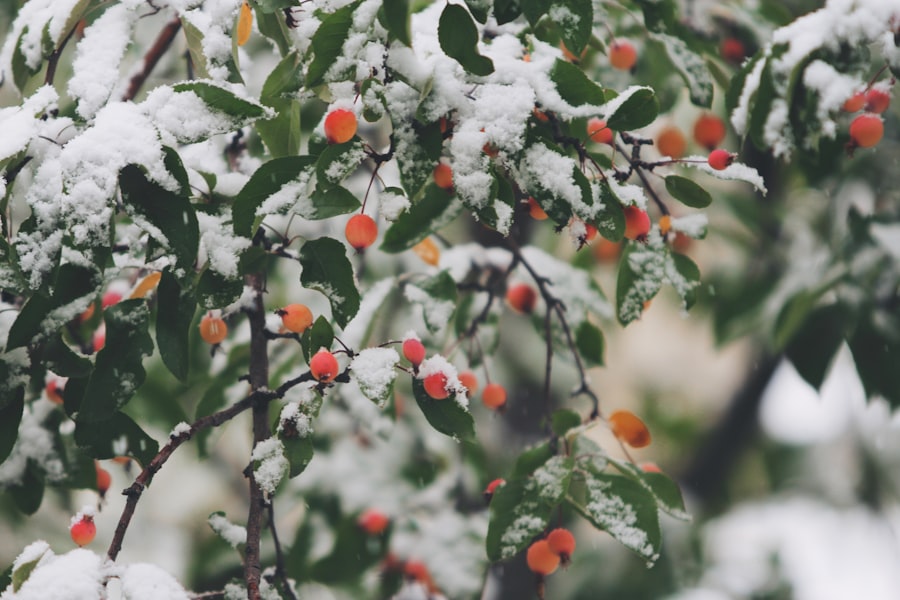Winter presents unique challenges for chicken owners, as cold weather and harsh conditions can adversely affect flock health and well-being. However, with proper care, chickens can thrive even during the coldest months. This article explores essential aspects of winter chicken care, including:
1.
Providing adequate shelter and protection
2. Ensuring proper nutrition and hydration
3. Maintaining clean and dry living conditions
4.
Offering enrichment and entertainment
5. Monitoring health and wellness
By following these guidelines, chicken owners can help their flock remain healthy and content throughout the winter season. As temperatures drop and days shorten, chicken owners must proactively prepare their coop and flock for winter challenges.
Implementing necessary measures, such as providing adequate shelter, ensuring proper nutrition, and monitoring chicken health, allows owners to help their flock not only survive but thrive during colder months. With appropriate care and attention, chickens can continue laying eggs, maintain good health, and even enjoy winter activities despite chilly weather.
Table of Contents
- 1 Providing Adequate Shelter and Protection
- 2 Ensuring Proper Nutrition and Hydration
- 3 Maintaining Clean and Dry Living Conditions
- 4 Offering Enrichment and Entertainment
- 5 Monitoring Health and Wellness
- 6 Conclusion and Additional Resources
- 7 FAQs
- 7.1 What are some ways to keep chickens happy during the winter?
- 7.2 How can I keep my chicken coop warm during the winter?
- 7.3 What kind of nutrition do chickens need during the winter?
- 7.4 How can I prevent my chickens’ water from freezing in the winter?
- 7.5 What are some ways to keep chickens entertained during the winter?
Key Takeaways
- Winter chicken care is essential for keeping your flock healthy and happy during the colder months.
- Providing adequate shelter and protection from harsh weather is crucial to ensure the well-being of your chickens.
- Ensuring proper nutrition and hydration through a balanced diet and access to fresh water is important for winter chicken care.
- Maintaining clean and dry living conditions helps prevent health issues and keeps your chickens comfortable.
- Offering enrichment and entertainment, such as toys and treats, can help keep your chickens active and stimulated during the winter months.
Providing Adequate Shelter and Protection
Providing a Warm and Secure Shelter
During the winter months, it’s crucial to provide chickens with a warm and secure shelter to protect them from the cold, wind, and potential predators. Insulating the coop with straw or hay can help retain heat, while ensuring that there are no drafts or leaks will prevent cold air from entering. Additionally, providing a source of heat, such as a heat lamp or heated waterer, can help maintain a comfortable temperature inside the coop.
Maintenance and Repair
It’s also important to regularly check for any signs of damage or wear and tear on the coop to ensure that it remains a safe and secure environment for the chickens. This includes inspecting the coop’s structure, walls, and roof for any signs of damage or weakness.
Protecting from Predators
In addition to providing a warm and secure shelter, it’s essential to protect chickens from potential predators during the winter months. As food becomes scarcer in the wild, predators may be more inclined to target chickens as a food source. By reinforcing the coop with sturdy fencing and ensuring that all doors and windows are securely closed at night, chicken owners can help keep their flock safe from harm. Additionally, installing motion-activated lights or alarms can help deter predators from approaching the coop.
Ensuring Proper Nutrition and Hydration

Proper nutrition is essential for maintaining the health and well-being of chickens during the winter months. As the temperature drops, chickens require additional energy to stay warm, so it’s important to provide them with a balanced diet that includes plenty of protein and carbohydrates. Supplementing their diet with high-quality feed, such as cracked corn or sunflower seeds, can help provide the extra energy they need to stay warm.
Additionally, offering fresh fruits and vegetables can help ensure that chickens receive essential vitamins and minerals to support their overall health. In addition to proper nutrition, ensuring that chickens have access to clean and unfrozen water is crucial during the winter months. Dehydration can be a significant concern in cold weather, so it’s important to regularly check water sources to ensure they haven’t frozen over.
Using heated waterers or regularly replacing frozen water with fresh, warm water can help ensure that chickens stay properly hydrated throughout the winter. By providing a balanced diet and access to clean water, chicken owners can help support their flock’s health and well-being during the colder months.
Maintaining Clean and Dry Living Conditions
Maintaining clean and dry living conditions is essential for preventing illness and promoting the overall well-being of chickens during the winter months. As moisture and humidity can lead to respiratory issues and frostbite, it’s important to regularly clean out the coop and remove any wet bedding or droppings. Adding fresh bedding, such as straw or wood shavings, can help absorb moisture and provide a warm and dry environment for the chickens.
Additionally, ensuring that the coop is well-ventilated can help prevent the buildup of moisture and ammonia from feces. In addition to keeping the coop clean, it’s important to regularly inspect chickens for any signs of illness or injury. Checking for frostbite on combs, wattles, and feet is crucial, as these areas are particularly susceptible to cold temperatures.
Additionally, monitoring for any signs of respiratory issues or lethargy can help identify potential health concerns early on. By maintaining clean and dry living conditions and regularly monitoring their flock’s health, chicken owners can help prevent illness and promote the overall well-being of their chickens throughout the winter.
Offering Enrichment and Entertainment
While winter may limit outdoor activities for chickens, it’s important to provide them with enrichment and entertainment to prevent boredom and encourage natural behaviors. Offering a variety of toys, such as hanging treats or pecking blocks, can help keep chickens mentally stimulated and engaged. Additionally, providing perches or platforms inside the coop can give chickens opportunities to roost and exercise their muscles.
Creating a stimulating environment with different textures and materials can also encourage natural behaviors such as scratching and dust bathing. In addition to providing enrichment inside the coop, allowing chickens access to a protected outdoor area can provide them with opportunities for exercise and exploration. Setting up a secure outdoor run with plenty of space to roam can help prevent boredom and allow chickens to engage in natural behaviors such as foraging and dust bathing.
Additionally, providing access to fresh grass or vegetation can offer nutritional benefits and mental stimulation for chickens. By offering enrichment and entertainment both inside the coop and in an outdoor run, chicken owners can help keep their flock happy and healthy throughout the winter.
Monitoring Health and Wellness

Recognizing Signs of Illness or Injury
Regular checks for signs of illness or injury, such as lethargy, abnormal droppings, or changes in behavior, can help address concerns promptly. Monitoring their overall condition, including body weight and feather quality, provides valuable insights into their health status.
Establishing a Relationship with a Veterinarian
Staying vigilant and observant is crucial, but it’s also important to establish a relationship with a veterinarian who specializes in poultry care. Having a professional on hand who can provide guidance on health concerns or administer medical treatment if necessary is invaluable for ensuring the well-being of a flock.
Preventing Common Winter Health Concerns
Staying informed about common winter health concerns for chickens, such as respiratory issues or frostbite, can help chicken owners take proactive measures to prevent these issues from arising. By monitoring their flock’s health and wellness closely and seeking professional guidance when needed, chicken owners can help ensure that their chickens stay healthy throughout the winter.
Conclusion and Additional Resources
In conclusion, winter chicken care requires careful attention to shelter, nutrition, cleanliness, enrichment, and health monitoring to ensure that chickens remain healthy and happy during the colder months. By providing adequate shelter and protection from predators, ensuring proper nutrition and hydration, maintaining clean and dry living conditions, offering enrichment and entertainment, and monitoring health and wellness, chicken owners can help their flock thrive throughout the winter season. For additional resources on winter chicken care, there are many reputable sources available online that offer valuable information on topics such as coop insulation, cold-weather feeding strategies, frostbite prevention, and more.
Additionally, joining online forums or local poultry groups can provide opportunities to connect with other chicken owners who may have valuable insights or experiences to share. By staying informed and proactive in caring for their flock during the winter months, chicken owners can help ensure that their chickens remain healthy and happy despite the challenges of cold weather.
If you’re looking for more tips on keeping your poultry happy and healthy, check out this article on how to care for goslings. It provides valuable information on raising and caring for geese, which can be a great addition to your backyard flock. Additionally, you can also learn about what kind of coop is best for chickens and what vegetables do quails eat to further enhance your knowledge of poultry care.
FAQs
What are some ways to keep chickens happy during the winter?
Some ways to keep chickens happy during the winter include providing them with a warm and dry coop, offering plenty of fresh water, providing extra nutrition, and giving them opportunities for exercise and entertainment.
How can I keep my chicken coop warm during the winter?
You can keep your chicken coop warm during the winter by insulating it, using a heat lamp or heated waterer, and providing plenty of bedding for the chickens to nestle in.
What kind of nutrition do chickens need during the winter?
Chickens need extra nutrition during the winter, including high-quality feed, scratch grains, and access to fresh greens and vegetables to help keep them healthy and happy.
How can I prevent my chickens’ water from freezing in the winter?
You can prevent your chickens’ water from freezing in the winter by using a heated waterer, adding a small amount of apple cider vinegar to the water, or using a heated base under the waterer.
What are some ways to keep chickens entertained during the winter?
You can keep chickens entertained during the winter by providing them with hanging treats, scattering scratch grains for them to find, and giving them access to a dust bath area.
Meet Walter, the feathered-friend fanatic of Florida! Nestled in the sunshine state, Walter struts through life with his feathered companions, clucking his way to happiness. With a coop that’s fancier than a five-star hotel, he’s the Don Juan of the chicken world. When he’s not teaching his hens to do the cha-cha, you’ll find him in a heated debate with his prized rooster, Sir Clucks-a-Lot. Walter’s poultry passion is no yolk; he’s the sunny-side-up guy you never knew you needed in your flock of friends!







